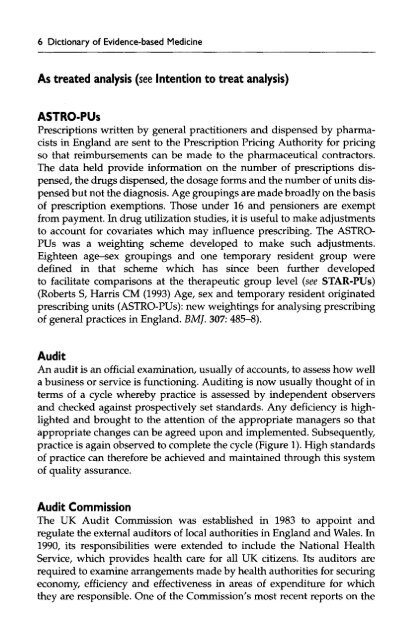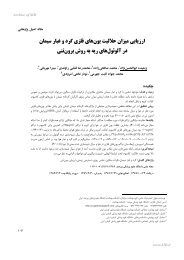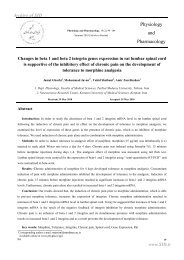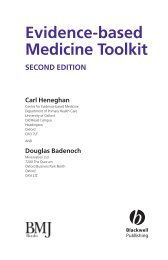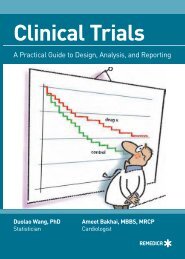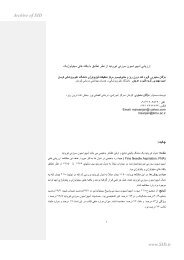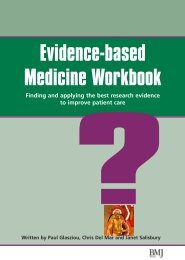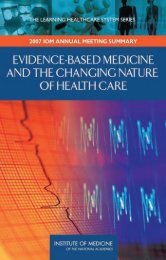Dictionary of Evidence-based Medicine.pdf
Dictionary of Evidence-based Medicine.pdf
Dictionary of Evidence-based Medicine.pdf
Create successful ePaper yourself
Turn your PDF publications into a flip-book with our unique Google optimized e-Paper software.
6 <strong>Dictionary</strong> <strong>of</strong> <strong>Evidence</strong>-<strong>based</strong> <strong>Medicine</strong><br />
As treated analysis (see Intention to treat analysis)<br />
ASTRO-PUs<br />
Prescriptions written by general practitioners and dispensed by pharmacists<br />
in England are sent to the Prescription Pricing Authority for pricing<br />
so that reimbursements can be made to the pharmaceutical contractors.<br />
The data held provide information on the number <strong>of</strong> prescriptions dispensed,<br />
the drugs dispensed, the dosage forms and the number <strong>of</strong> units dispensed<br />
but not the diagnosis. Age groupings are made broadly on the basis<br />
<strong>of</strong> prescription exemptions. Those under 16 and pensioners are exempt<br />
from payment. In drug utilization studies, it is useful to make adjustments<br />
to account for covariates which may influence prescribing. The ASTRO-<br />
PUs was a weighting scheme developed to make such adjustments.<br />
Eighteen age-sex groupings and one temporary resident group were<br />
defined in that scheme which has since been further developed<br />
to facilitate comparisons at the therapeutic group level (see STAR-PUs)<br />
(Roberts S, Harris CM (1993) Age, sex and temporary resident originated<br />
prescribing units (ASTRO-PUs): new weightings for analysing prescribing<br />
<strong>of</strong> general practices in England. BMJ. 307: 485-8).<br />
Audit<br />
An audit is an <strong>of</strong>ficial examination, usually <strong>of</strong> accounts, to assess how well<br />
a business or service is functioning. Auditing is now usually thought <strong>of</strong> in<br />
terms <strong>of</strong> a cycle whereby practice is assessed by independent observers<br />
and checked against prospectively set standards. Any deficiency is highlighted<br />
and brought to the attention <strong>of</strong> the appropriate managers so that<br />
appropriate changes can be agreed upon and implemented. Subsequently,<br />
practice is again observed to complete the cycle (Figure 1). High standards<br />
<strong>of</strong> practice can therefore be achieved and maintained through this system<br />
<strong>of</strong> quality assurance.<br />
Audit Commission<br />
The UK Audit Commission was established in 1983 to appoint and<br />
regulate the external auditors <strong>of</strong> local authorities in England and Wales. In<br />
1990, its responsibilities were extended to include the National Health<br />
Service, which provides health care for all UK citizens. Its auditors are<br />
required to examine arrangements made by health authorities for securing<br />
economy, efficiency and effectiveness in areas <strong>of</strong> expenditure for which<br />
they are responsible. One <strong>of</strong> the Commission's most recent reports on the


